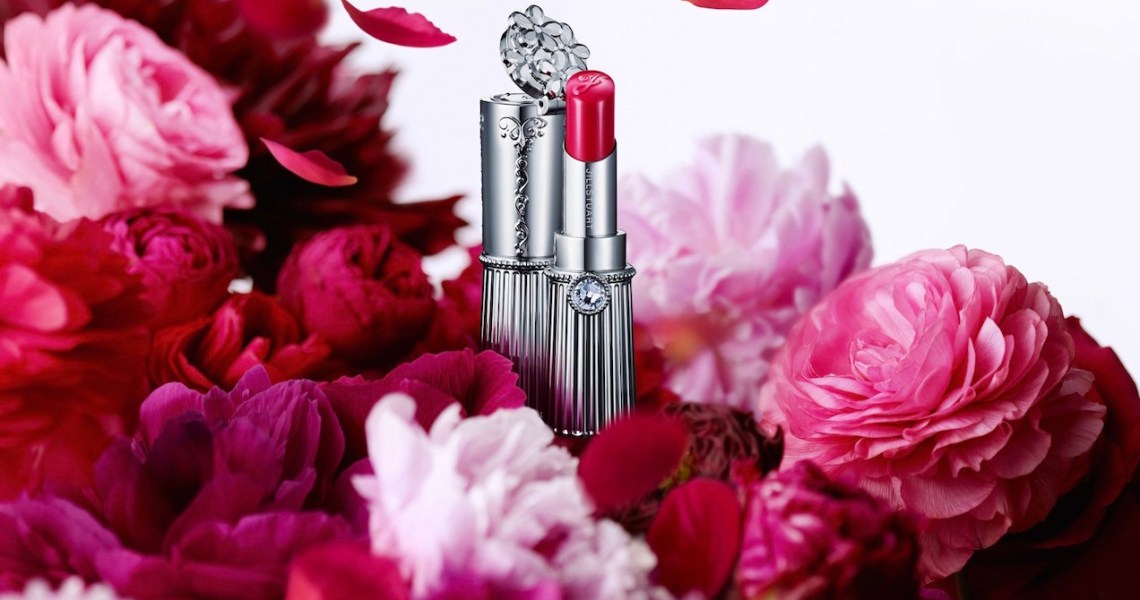Jill Stuart Beauty, a Japanese-inspired cosmetics brand under Kosé Corporation’s portfolio, is ramping up its presence in the U.S. market to tap into the American appetite for J-beauty.
The beauty brand was founded in 2005 by New York-based designer Jill Stuart and Kosé, but it was only sold in Asian markets like Hong Kong, China and South Korea until October 2018. The Jill Stuart fashion label showcases seasonal collections during New York Fashion Week and is sold through specialty boutiques and its own store in SoHo. It also launched a diffusion line through department stores in March, according to WWD.
Late last fall, Jill Stuart Beauty debuted a U.S.-facing e-commerce site, jillstuartbeautyusa.com, and began selling on the designer’s e-commerce site, jillstuart.com. This week, it is expanding to U.S. e-commerce retail partners, including Beautylish.com, before expanding into still undetermined brick-and-mortar retailers. It is also participating in consumer-facing events, like Popsugar Playground in New York City in June. There, Jill Stuart Beauty artists will perform makeup applications on attendees amid a colorful area inspired by Japan, where attendees can also take photos and buy product.
Parent company Kosé Corp. declined to break out sales of Jill Stuart Beauty, but operating profit for the corporation’s cosmetics business category, which includes Tarte Cosmetics, Sekkisei, Esprique and Astablanc, increased by over 25% in 2018 to $438 million, according to year-end earnings report.
“J-Beauty is having a moment in the U.S. It made sense to launch the brand in the U.S. [after Asia], as this consumer is starting to be more aware of J-beauty,” said Connie Mei, Jill Stuart Beauty director of marketing.
Indeed, J-Beauty has seen increased traction in the U.S., as a result of the fanfare over K-Beauty. According to market research firm NPD Group, J-beauty sales grew by 19% from January to September 2018, Brands like Shiseido, NatureLab Tokyo, SK-II and Japanese-inspired Tatcha have introduced the U.S. customer to the principles of Japanese beauty, which focus on multi-purpose products, beauty rituals, and “traditional yet powerful ingredients,” said Anagha Hanumante, CB Insights beauty analyst.
In Japan, Jill Stuart Beauty is sold through department stores, like Lumine and MCS Marui, and caters primarily to 18- to 25-year-old women. In the U.S., instead of looking to department stores to distribute the brand, the company is focused on online sales first before expanding into physical beauty retailers. Although every Kosé-owned brand has its own unique go-to-market strategy, the parent company is hoping to use Jill Stuart Beauty to better understand U.S. customers overall and what is driving purchase decisions, said Mei. She hopes to leverage these leanings for other brands like Esprique and Astablanc, which are now only sold in Asia.
Ad position: web_incontent_pos1
To drum up interest in Jill Stuart Beauty in the U.S. and, subsequently, direct sales via its digital channels, the brand has engaged in a robust unpaid micro- and macro-influencer program with over 100 ambassadors, like Tiffany Ma (@misstiffanyma, 626,000 followers) and Amy Littleson (@amybelievesinpink, 58,000 followers). Thus far, these influencers have been gifted product and event invites. In the long term, Jill Stuart Beauty hopes to work with Beautylish in a cross-promotion social strategy to foster engagement among the sites’ customers.
“Beautylish has a huge social and online presence. We see building out that [fan] community and engaging customers through [both companies’] channels,” Mei said. Beautylish has 506,000 followers on Instagram, which is comparable to Jill Stuart Beauty’s Japanese account. Jill Stuart Beauty’s U.S. Instagram has only about 6,500 followers.
Now that Jill Stuart Beauty is selling in the U.S., Mei said the brand hopes to partner more directly with Stuart, herself, and sees New York Fashion Week as a key opportunity.




